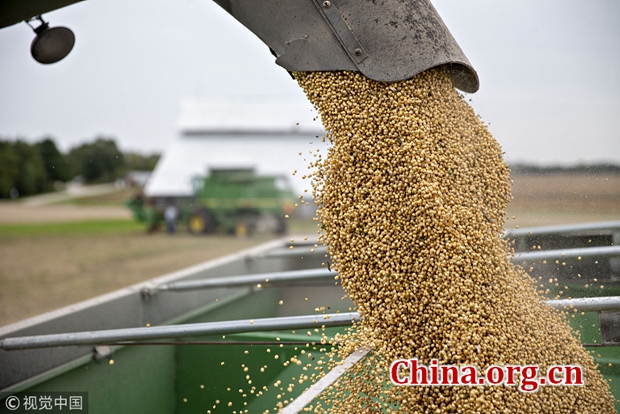Economic slowdown ahead for US
- By Mitchell Blatt
 0 Comment(s)
0 Comment(s) Print
Print E-mail China.org.cn, November 27, 2018
E-mail China.org.cn, November 27, 2018

Reports by Goldman Sachs, Reuters and multiple analysts all point to one thing: U.S. economic growth is expected to slow down next year.
Goldman Sachs said that GDP growth, which has been over 3 percent in each of the past two quarters, is expected to drop below 3 percent each quarter of 2019 and then below 2 percent in 2020. Reuters' survey of 70 economists bore a similar conclusion on growth rates and added that there is a 35 percent chance of a recession occurring between now and 2020.
Bluford Putnam and Erik Norland of the CME Group agreed that there is a one-third chance of a recession, while Ronald Temple of Lazard Asset Management said that the risk of a recession "increased substantially in the past few months."
The two biggest drivers of economic pessimism are rising interest rates expected to be enacted by the Federal Reserve and the continuing impact of the trade war. Each of those things might have been manageable by itself, but happening together, it is a one-two punch in the gut.
"Take trade wars off the table and that significantly reduces the risk of recession," Temple said to CNN in mid-October. Putnam and Norland wrote in a public report in September, "[T]he reality is that the trade war is coming at a very bad time."
Trump's trade war hurts the U.S. in two ways: First, producers have to pay higher prices for raw materials coming into the United States; second, U.S. exports have decreased in some sectors due to retaliatory tariffs applied by China and other countries.
Agriculture has been particularly hard hit by retaliatory tariffs. Soybean exports to China since July have been close to nothing. The U.S. hasn't come close to making it up in exports to the rest of the world. In October 2018, U.S. soybean exports globally were half of what they were in October 2017.
American manufacturers that use metal sourced from overseas to produce final goods are also paying a heavy price. While foreign-produced steel is more expensive due to tariffs, the price of domestic steel has also skyrocketed due to artificially increased demand for the stuff. In the first week after steel tariffs were announced in March, prices for steel made in the U.S. rose by 35 percent. The American Enterprise Institute published an analysis in October that said American steel prices are the most expensive in the world.
Caterpillar, a construction equipment company, and Ford have both seen their stock prices drop by over 20 percent over the past six months. Precor, a company that makes exercise equipment, says its material costs are rising.
China isn't the only target of Trump's trade ire. America's largest nail manufacturer has had to lay off 150 employees since Trump levied taxes on Mexican-made steel in June. Tariffs on Canadian-sourced lumber caused the price of a home to rise by US$9,000, according to the National Association of Home Builders.
At the same time, the trade war with China hasn't even had the intended effect this administration wanted. America's trade deficit with China has actually increased to 40 billion in September, its highest trade deficit yet.
If the economy does slow down as predicted, that would mean grave trouble for Donald Trump and his ability to continue to maintain political support for the trade war. Trump's party just lost 40 seats in the House of Representatives this past election day, the biggest Democratic landslide since 1974. For such a result to occur when unemployment is at 3.7 percent, a 50-year low, indicates widespread opposition to the policies and style of the party in power. When the Republicans took back control of the House after two years of President Obama, the unemployment rate was 9.8 percent.
Already Trump is thinking about reelection. If the economy is bad, then pressure is going to be on the president to fix the economy, and it will be harder to justify taxing so many imports.
If Trump is to avoid that scenario, he must act soon. The longer the trade war continues, the more it will impact the economy. Tariffs should be a means to negotiate, but negotiation requires the flexibility to make a deal. Trump needs to get to the negotiating table and be pragmatic, before it's too late.
Mitchell Blatt is a columnist with China.org.cn. For more information please visit:
http://www.china.org.cn/opinion/MitchellBlatt.htm
Opinion articles reflect the views of their authors, not necessarily those of China.org.cn.






Go to Forum >>0 Comment(s)